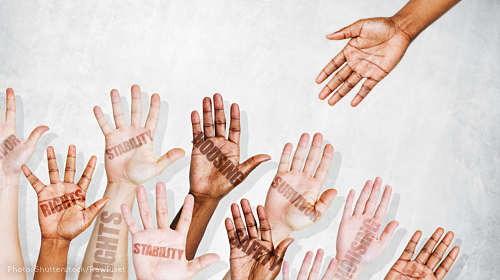
Three strikes and you're out of your home and on the street – all because you called 911 for help. That was the nightmare faced by Lakisha Briggs and other residents of Norristown, Pa.
Under a local ordinance, three calls to the police in four months, including for protection from crimes such as domestic violence, would result in revocation of the landlord's rental license and removal of the tenant for trespassing. A second version of the ordinance imposed steep fines on the landlord that could be avoided if the landlord evicted the tenant, even if she was in dire need of emergency or police assistance.
These types of ordinances – often referred to as nuisance ordinances, crime-free ordinances, or disorderly behavior ordinances – legitimize victim-blaming with the force of law. By treating calls to the police as a nuisance, they jeopardize the security of victims of crime, punish them for seeking protection, and undermine public safety.
Ms. Briggs experienced the harshness of Norristown's ordinance first hand, when she was assaulted by her ex-boyfriend in 2012. He was arrested, but a police officer told her that more calls to the police would lead to her eviction. The law trapped Ms. Briggs in a vicious Catch-22: call the police when her ex-boyfriend returned to attack her and lose her home, or keep her home and perhaps lose her life.
After Ms. Briggs suffered additional violence, including being stabbed in the neck with a broken glass ashtray, she and her young daughter were threatened with eviction and removal from their home. The ACLU and the ACLU of Pennsylvania, with the law firm Pepper Hamilton, filed a lawsuit challenging the ordinance, arguing that it violated Ms. Briggs' rights under the Constitution and federal law.
Today, we reached a settlement with Norristown. Under the agreement, Norristown will pay $495,000 in compensation and attorneys' fees to Ms. Briggs. It also repealed its ordinance and promised not to pass another law that would punish residents and landlords as a result of requests for emergency assistance. This is an important step forward for Norristown, one that will contribute to rebuilding community trust with law enforcement and more effective responses to crimes like domestic violence.
But similar nuisance ordinances are on the books across the country. Few cities and towns consider the impact these laws have on access to police and emergency services by those who sincerely need help. Nor do they consider the impact on homelessness rates before enacting them. Furthermore, the ordinances pressure landlords to handle criminal situations when such duties properly belong to law enforcement.
For example, one landlord received notice from the police department that his property was in violation of a nuisance ordinance in Wisconsin because his tenant, a domestic violence victim, had been beaten and called the police. The landlord responded to the police: "We suggested she obtain a gun and kill him in self-defense, but evidently she hasn't. Therefore, we are evicting her."
The federal government has recognized the troubling effects of these ordinances and is taking action. After we filed the lawsuit, the Secretary of the U.S. Department of Housing & Urban Development initiated a separate Fair Housing Act complaint against Norristown, alleging that Norristown violated the law by discriminating against domestic violence survivors, the vast majority of whom are women. HUD investigated Norristown's implementation of the ordinance and pushed with us for its repeal. Its complaint is still pending as it negotiates a separate agreement with the municipality.
This federal oversight is vital, and it puts municipalities on notice that these ordinances may conflict with their civil rights obligations. State legislatures should also step in by passing laws that prohibit municipalities from punishing tenants and landlords based on police or emergency assistance.
Crime victims – including domestic violence victims – are not nuisances. They deserve access to police services and housing stability, not eviction and more violence.
The ACLU wants to hear from anyone who has been affected by these ordinances, including landlords, tenants, fair housing and domestic violence advocates. If you have a story to share, please fill out our survey.
Learn more about nuisance ordinances and other civil liberty issues: Sign up for breaking news alerts, follow us on Twitter, and like us on Facebook.
Stay informed
Sign up to be the first to hear about how to take action.
By completing this form, I agree to receive occasional emails per the terms of the ACLU's privacy statement.
By completing this form, I agree to receive occasional emails per the terms of the ACLU's privacy statement.


